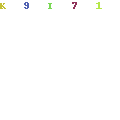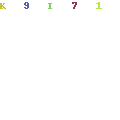In a landmark order, a division bench of Bombay high court (HC) on Friday said, “We need to remind ourselves that despite nearing 75 years of our independence, despite the guarantees that Part III of the Constitution envisions, and despite the goals engrafted in Part IV of the Constitution which the State ought to strive to achieve, a society which can provide equal opportunities to all is yet a distant reality.” The division bench comprised Chief Justice Dipankar Datta and justice Amjad Sayyad was hearing a clutch of petitions regarding the handling of the Covid-19 outbreak in Maharashtra.
While listing failures on part of the state in its handling of the pandemic and the challenges faced by the poor and migrant workers during lockdown, the bench said, “That misery of this degree could be brought about by the pandemic was indeed unimaginable. The pandemic and the resultant lockdown have destabilised the Indian economy, while wrecking the ‘haves’ and the ‘have nots’ alike. It has shown how pitiable the conditions of migrant workers in India are. India, as things stand now, can hardly think of a fair and just society any time in the near future.”
The bench pointed out “factors which have been responsible for the spread of the pandemic in India” including lack of preparedness to tackle a problem of such magnitude, insufficient testing kits as well as protective gear and generally inadequate healthcare infrastructure. It also noted that not sharing data led to limited awareness regarding Covid-19 among large sections of the population and criticised the coordination between the Centre and state.
Further, the bench noted that it fell upon the judiciary to address citizens’ concerns when the legislative fails to do so. “A judiciary, zealous and vigilant in safeguarding the rights of the people, is what the framers of the Constitution dreamt of and it needs no reiteration that by and large, the people of this nation have reposed faith and trust in the judicial institutions to rescue them in even the worst of situations,” said the bench, going on to add that “judicial propriety demands that we tread the path of caution and circumspection” while criticising the role of the executive in the handling of the pandemic. “Instead of adoption of a critical approach of the unintended failures of the executive, the exercise of the extraordinary power available under Article 226 of the Constitution has to be tempered by judicial restraint,” it said.
The bench then went on to quote parts of the famous “tryst with destiny” speech, delivered on the eve of India independence to the constituent assembly in 1947 by the first prime minister of India, Jawaharlal Nehru. “The service of India means the service of the millions who suffer. It means the ending of poverty and ignorance and disease and inequality of opportunity. The ambition of the greatest man of our generation has been to wipe every tear from every eye. That may be beyond us, but as long there are tears and suffering, so long our work will not be over,” Nehru had said.
The bench went on to state, “If indeed tears and suffering are to be wiped from those who are ailing of Covid-19 and related matters, the nation expects service, ie ‘seva’, from each one of its citizens. It does not take much to serve.”
Failure to provide testing facilities for frontline workers at hospitals
The division bench extended a Nagpur bench’s order of June 1 and said that “if any frontline/ healthcare worker at non-Covid hospitals/wards expresses willingness for being tested on RT-PCR method, the respondents shall proceed in that direction in accordance with the guidelines and protocol prescribed therefor by the ICMR [Indian Council of Medical Research].” The order came after senior advocate Mihir Desai, appearing for the non-governmental organisation Jan Swasthya Abhiyan, had contended that the state should extend the benefit of testing to asymptomatic workers. Desai said nearly 41,000 people, including doctor, nurses and other frontline workers, had contracted the virus and many policemen had also succumbed to Covid-19. He also pointed out a June 1 order of the Nagpur bench of the HC had said that even though the extant guidelines do not envisage testing of all frontline/healthcare workers, the state owes this to frontline workers to ensure minimisation of any risk to them.
Appearing for the state, advocate general Ashutosh Kumbhakoni sasid testing of asymptomatic frontline workers working in hospitals and containment zones, as declared by the relevant authorities, has been left to the discretion of such frontline workers. There is no mandatory direction for testing of all asymptomatic frontline workers. Kumbhakoni contended that the aim should be to test those who actually need tests, but had urged the court to issue directions to fine-tune the system so that testing kits are not wasted but there is maximum utilization of the available kits through pragmatic decision making.
Senior advocate Anil Sakhare, appearing for the Brihanmumbai Municipal Corporation (BMC), said a rational approach has to be adopted since there’s a scarcity of materials. He said 3,500 to 4,000 tests are being conducted daily and said the court ought to leave the matter of deciding which frontline workers should be tested — symptomatic or asymptomatic — to BMC.
Distribution of PPE
Responding to a petition filed by Dayanand Stalin, the bench held that the neither the state nor BMC are under any obligation to “distribute PPE to all and sundry”. It found the plea that each healthcare worker treating non-Covid patients to be provided with PPEs justified to the extent of face masks and shields, gloves, goggles and sanitisation materials including soap, but not the full equipment which includes a body suit, covered shoes etc. “Use of a full body-suit could create significant hazards such as physical and psychological stress, impaired vision, mobility and communication. Literature on ,PPEs which we have had the occasion to look into, sounds a caution that greater the level of PPE protection, greater would be the associated risk,” the bench said.
The bench said that distribution of PPEs must be need-based. “We hope and trust that the state and BMC shall be rational in distribution of PPEs, and leave no room for complaint in regard to its distribution and the other kits in keeping with the demands of the situation,” the bench noted.
Price cap on pathological tests
The bench held that it would leave it to the state “to spread the net of free testing high and wide to cover maximum number of people in distress”. The order came after the state brought to the notice of the bench a circular dated May 21, by which charges for treatment at private or charitable hospitals and health service care centres were capped. The petition was filed by Kurla resident Sarika Singh, who learnt from a police constable that he was asked to deposit Rs 2 lakh by a private hospital when he sought treatment for Covid-19. Advocate Varsha Jagdale informed the court that the exorbitant demand of the hospital was brought down to Rs 20,000 after the police threatened to charge the hospital for denying treatment to a patient.
Beds in private hospitals for economically weaker sections
Responding to a public interest litigation (PIL) filed by non-governmental organisation Jan Swasthya Abhiyan and Mumbai resident Mehrwan Fashed, the bench gave full liberty to Maharashtra state to take punitive action against hospitals that fail to comply with the state’s directive of reserving 80% of available beds in private or charitable hospitals for the Covid-19 patients. The PIL asked the court to direct that beds in private hospitals be reserved for patients from economically weaker sections of society and that the cost of treatment at these hospitals should be borne by the state. “Although 20% of the beds in the private/charitable hospitals are required to be reserved for the poorest and the poor, the situation arising out of the pandemic has compelled the State to take a proactive stand keeping in mind the need to reach out to all,” said the bench.
Covid-19 helplines
Two PILs filed by activist Dayanand Stalin through advocate Aniket Kulkarni and lawyer Mutahhar Khan through advocate Sharan Jagtiani alleged the BMC-run Covid-19 helpline (1916) was ineffective because callers had long waits and those responding to the calls were not able to offer much help. The bench noted there was “a divergence of opinion” as some have got assistance from the helpline. “Those who have been critical must realize the prevailing situation of the pandemic and that assistance of the level that could be expected or available in normal times may not now be on offer. That the MCGM [Municipal Corporation of Greater Mumbai] has to respond to more than 4,000 calls per day is an indicator of the load taken by the informers receiving the calls,” said the bench. While noting that there was scope for improvement, the bench directed the state to see to it that other municipal corporations set up helplines similar to 1916.
War room dashboard
Multiple petitions raised complaints that it was difficult to get accurate information for available Covid-19 facilities, like beds and ventilators. Following the suggestions of petitioners, MCGM has devised a ‘war room’ dashboard that uploads relevant information online. “We record our satisfaction at such dashboard providing relevant information regarding the current status of the effects of the pandemic in the state as well as the data forming part of it. The only direction that we wish to make in this behalf is to direct the MCGM to upload on its website the entirety of the contents of the dashboard placed before us so that such data could benefit those in search of the available facilities,” said the bench.
Absence of grievance redressal cell
A PIL by Sarika Singh and Mehrwan Farshed had pointed out there was no platform for grievances of those who could not get admitted or treated or were being charged excessively. “We are of the considered view that the MCGM should, without any delay, explore ways and means to set up a grievance redressal cell before which complaints could be lodged online/offline. The IAS officer who has been deputed to monitor and oversee the activities related to COVID-19, or any other officer, shall be appointed as the head of the cell with instructions to act promptly as and when complaints deserving immediate intervention are received,” said the bench.
The Uber alternative
Petitioners raised complaints regarding MCGM-run ambulances, which are insufficient now that the majority are transporting Covid-19 patients, and suggested roping in taxi aggregator apps like Uber to transport non-Covid patients to hospitals. MCGM has been using ambulances offered by NGOs as well as converting buses run by the Brihanmumbai Electricity Supply and Transport (BEST) undertaking into ambulances. “The State and MCGM may consider requiring private ambulances to be made operational, provided of course requisite human resources are available to operate it. If indeed the platform of Uber can be utilized … that could take care of a part of the problem,” said the bench.
Source: https://www.hindustantimes.com/mumbai-news/misery-brought-about-by-the-covid-19-pandemic-unimaginable-says-bombay-hc-in-landmark-ruling/story-T4ObFyyffGW5bC0xTPbpAM.html


